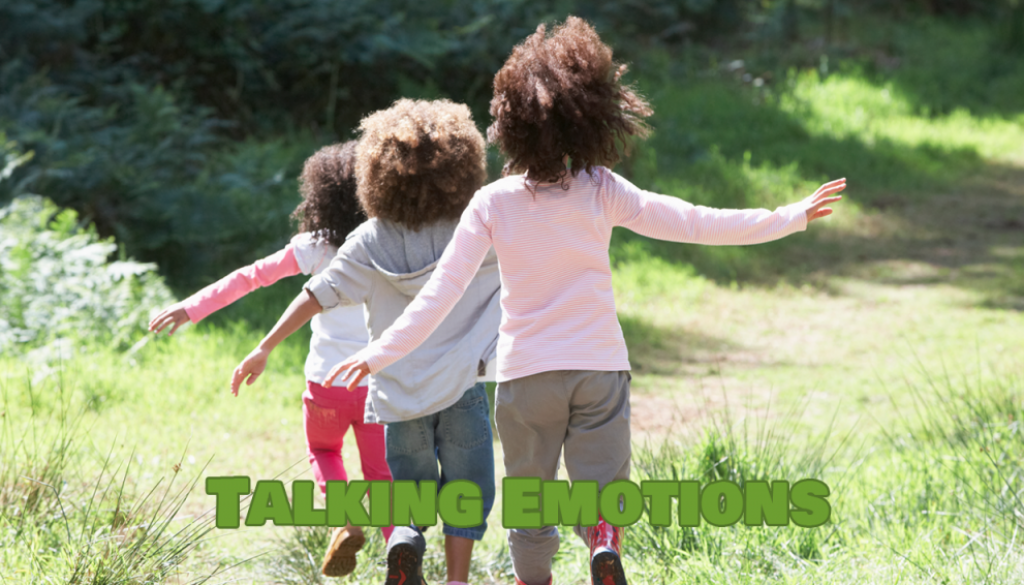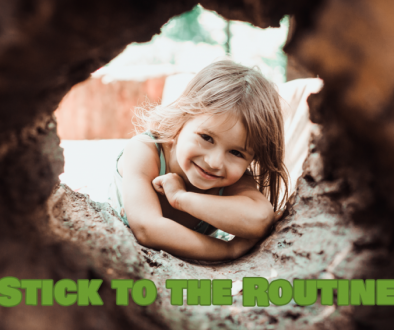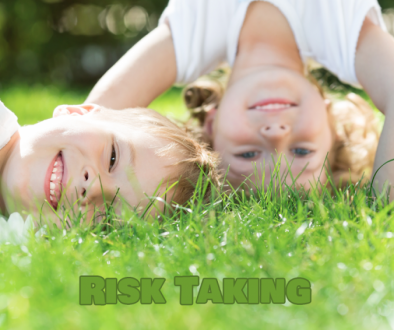Surviving Lockdown #3
Talking Emotions
To watch the accompanying information video go here
Young children need to be taught about their feelings, helping them to make sense of their emotions. It will allow them to become adults who can express themselves appropriately and regulate how they behave in social situations, as well as become compassionate and empathetic.
Show your Feelings
You don’t have to hide all your emotions from your children, in fact, it is good for them to learn that it is ok and normal to feel sad sometimes. They do not have a lot of life experience so they can learn from yours and it is good to normalise feeling different ways.
However, it is important that when you are feeling sad, anxious, angry or any other emotion that may come across as negative, you explain to your child what you are feeling and why it is ok. Use age appropriate explanations, i.e. you don’t have to tell the full harsh truth, but allow them to understand that you will be ok, avoiding their imagination taking them to all kinds of terrible places.
Through these experiences we are giving our children a life skill and also inviting them to discuss their feelings and emotions.
Emotional Literacy
Emotional literacy was first identified by Claude Steiner (Steiner, 1979), identifying five essential elements:
- Knowing your feelings
- Having a sense of empathy
- Learning to manage your emotions
- Learning to repair emotional problems
- Developing emotional interactivity
Prioritising the understanding of one’s own emotions as well as being sensitive to the feelings of others, leads to healthy relationships and the ability to confident deal with difficult social situations.
Top Tips
- Throughout your day, model and label your own emotions, e.g. “I feel frustrated because I can’t go outside as I have to work, etc.
- Have end of day discussions with your children over dinner that include what made you happy, sad, frustrated and proud of yourself and ask them about their day.
- Play emotions games, e.g. pulling emotion faces, including emotions in active stories, emotion active rhymes or action songs etc.
- Teach your child to label their emotions by asking them how they feel or stating how you think they feel and asking what can be done to make themselves feel better.
- Have discussions about the feeling of the characters in the stories you read to them. Can they guess how the character is feeling? How do they think that makes the character feel? Etc.
- At the start of the day discuss how you feel about the day ahead and what you feel about what you have planned. Ask them about how they feel.
- Slowly add more complicated emotional words to discussions such as surprised, proud, embarrassed, cross, etc.
- Draw faces. This is a great way to teach emotions through a fun drawing activity.
Behaviour and Mental Health
We spend so much time asking children to sit still, be still and stop fidgeting, we sometimes forget that young children need to move to grow, develop and learn. Asking them to behave unnaturally could lead to negative behaviour. How many times while watching a young child playing, constantly on the go, you think “I wish I had that much energy”? They do have boundless energy and if we do not allow them to move, that energy could be channelled elsewhere, often turning into what we would call “bad behaviour”.
Top Tip
Provide activities that help children to understand their feelings, such as role play, active stories and games that include emotions such as happy, sad and angry. Children will find this fun and non-threatening.
Creative play and physical activity also play a role in the development of executive function skills and self-regulation, needed to control our emotions and cope with difficult situations. Through movement and active play children can express anger, be destructive and generally express emotions, especially outside, that are not usually acceptable in most situation. Giving children freedom to express themselves and their emotions will also help them to learn about acceptable behaviour.
Top Tip
- Praise your children. Of course, as adults who care for children, you will find yourself happily praising them on a regular basis.
- When children try to attention seek by behaving in a negative way it is often a sign that there is an issue, such as low self-esteem, feeling worried or lack of positive relationships. Distracting children from this behaviour by praising something else they have done or are doing can diffuse the situation, while reinforcing your relationship. Try to avoid giving them more attention when they are behaving negatively and give them the attention they seek when they are behaving in a positive manner.
- When a child is having a “tantrum” this could be due to the fact that they are feeling emotions they do not understand and which scare and confuse them and, then, make them feel more negative emotions. As much as you may want them out of your sight try to gather them up and hug them. This will hopefully sooth them and diffuse the downward spiral of emotions. Alternatively, find a calm quiet space where they can calm down.
- Encourage children to identify their achievements and to praise themselves.
- Use positive language – be mindful to avoid negative language or use of your voice. Children learn so much more from us than what we teach them.
- Make physical activities, or any other form of activity, engaging and appropriate. If we try to force them to do something they don’t enjoy or that is too challenging they may become frustrated and start to behave negatively.
- Partake in activities and have fun with your children – develop a positive relationship and model good behaviour.
- Have realistic expectations of children. The more you understand their needs, abilities and interests the better.
- Create opportunities for self-regulation through regular risky play.
Natural Development
Examples of how self-directed movement and active play in the early years can help children develop emotionally:
- When children are climbing they will be concentrating, problem solving, learning to believe in themselves and their own ability. They will challenge themselves. When they reach the top or the desired place, they will feel a sense of achievement which will help their confidence grow. Children might become fearful, but if they push forward, with or without encouragement from others, they will develop resilience and discover that they can do more than they thought.
- They will be learning about others and the social world through role play, imaginative play and active stories.
- They will be exploring nature, which can help them feel calm and free to express themselves physically and emotionally.
- They will be throwing and kicking balls and when the ball lands where they intended or they manage to catch it they will feel a sense of achievement.
- They will be attempting obstacles courses and trim trails, which will give them a great sense of achievement and self-worth.
- The opportunities to learn and develop in the outdoor environment is endless. It offers many open-ended opportunities to explore their own ability, create and try new things.
- When building with construction toys and/or natural resources children will need to problem solve, make various decisions and find making mistakes acceptable and part of the experience, which will support the development of resilience.
Independence
Ultimately, we want children to become happy independent adults.
In order to develop independence, they need to learn self-belief, amongst many other skills. Supporting children to feel good about themselves and their abilities, giving them responsibilities and allowing them to learn from their mistakes without making a fuss or trying to fix everything for them will lead to independent young children and, in turn, adults.




